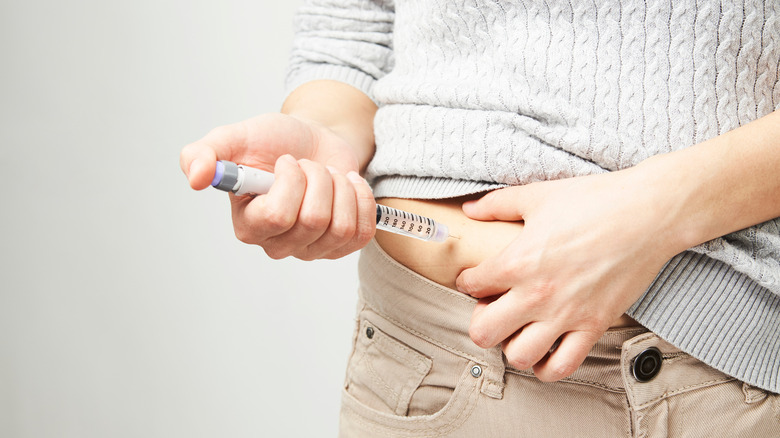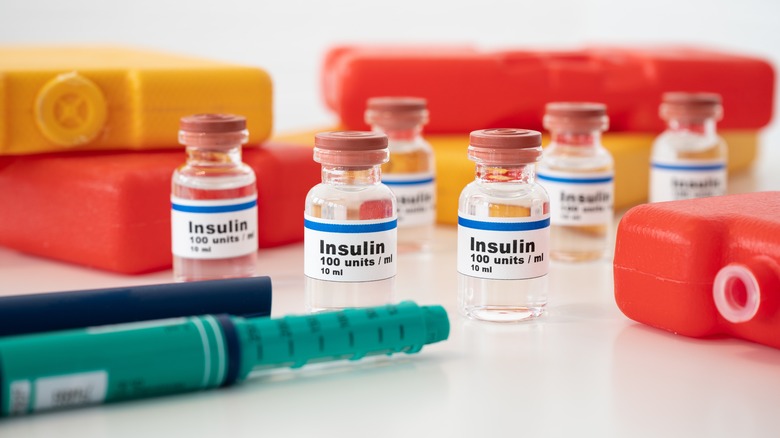What Happens To Your Body If You Take Too Much Insulin?
It may come as no surprise to you that insulin is available as a treatment option for people with diabetes, but you may not know exactly what insulin is and how it affects the body. According to the American Diabetes Association, insulin is a natural hormone produced inside beta cells in the pancreas. These beta cells are found in the Islets of Langerhans, which is a group of cells that secrete hormones controlling blood glucose levels, as explained by Science Direct. Whenever you eat, beta cells in your pancreas release insulin in order for blood sugar from the food you're consuming to be used or stored. Diabetes can interfere with this process.
For individuals with type 1 diabetes, their pancreas has trouble creating insulin due to their islet cells being compromised, reports the Mayo Clinic. Currently, there's no cure for type 1 diabetes and the underlying cause is unknown, although genetic factors and being exposed to viruses are believed to play a role.
Type 2 diabetes is the most common form of diabetes, affecting 90-95% of Americans diagnosed with diabetes, per the Centers for Disease Control and Prevention (CDC). In those with this type, their pancreas produces insulin. However, their cells don't respond well to insulin, which causes the pancreas to create even more insulin until it can no longer keep up as blood sugar rises to abnormal levels.
For anyone with diabetes, receiving the right amount of insulin is crucial, as having too little or too much insulin can have unfavorable effects.
What are the dangers of taking too much insulin?
Insulin is vital to individuals with diabetes, but receiving too much insulin can be dangerous. In fact, it's even possible to overdose on insulin. Medical News Today reports that symptoms of hypoglycemia, or low blood sugar, may come as a result of overdosing on insulin. It's possible for someone to experience mild hypoglycemia if they have miscalculated their mealtime insulin or have forgotten to eat. Some symptoms of mild insulin overdose include confusion and brain fog, irritability, anxiety and depression, tremors and dizziness, sweating and cold sweats, blurred vision, and a faster heart rate.
If this occurs, it's important to check your blood sugar levels, as anything below 70 milligrams per deciliter (mg/dl) indicates hypoglycemia. You can then take steps to increase your blood sugar levels as soon as possible, which can be done by drinking sweet fruit juice or soda, eating a piece of candy or a tablespoon of honey, or taking a glucose tablet. Eating a meal can also increase blood sugar levels if the cause of overdose was from missing a meal. You should recheck your blood sugar after these steps, and if your blood sugar is still not normal after 15 minutes, Medical News Today recommends seeking medical assistance.
Symptoms of a severe insulin overdose, such as seizures or a loss of consciousness, require immediate medical attention by calling 911 as they could potentially be fatal or put someone in a coma.


